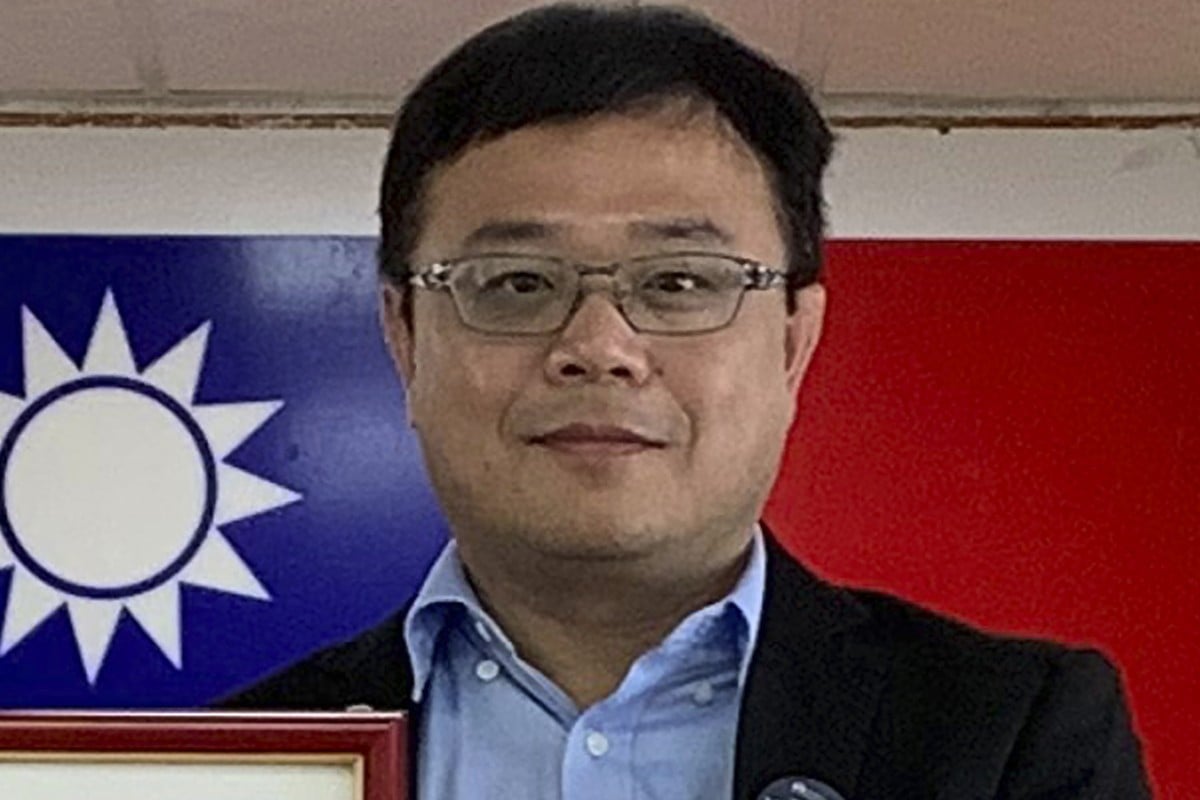By Ben Westcott and Isaac Yee
 Taiwanese businessman Lee Meng-chu, 43, disappeared after he crossed over the border from Hong Kong to the mainland Chinese city of Shenzhen on August 19
Taiwanese businessman Lee Meng-chu, 43, disappeared after he crossed over the border from Hong Kong to the mainland Chinese city of Shenzhen on August 19Hong Kong -- Taiwan's ruling party has warned citizens against traveling to Hong Kong or mainland China, saying the situation is "severe," after a Taiwanese businessman was detained following a visit to the protest-wracked city.
Lee Meng-chu, 43, disappeared after he crossed over the border from Hong Kong to the mainland Chinese city of Shenzhen on August 19.
He was reported missing by a friend, Chen Ya-lin, who was supposed to meet him at Jakarta airport two days later.
Chen said Lee had attended a protest in Hong Kong before crossing the border.
On Wednesday a spokesman for China's Taiwan Affairs Office confirmed that Lee was being questioned for "criminal activities that could jeopardize China's national security."
On Wednesday a spokesman for China's Taiwan Affairs Office confirmed that Lee was being questioned for "criminal activities that could jeopardize China's national security."
The spokesman did not elaborate on the specific accusations against Lee.
Hsueh Cheng-yi, a spokeswoman for Taiwan's ruling Democratic Progressive Party (DPP), said that the detention had led to fears in Taiwan over the safety of travelers heading to Hong Kong or mainland China.
"The situation inside Hong Kong and China is severe and travel should be reduced. If you have to go to these areas, you must pay close attention to your own safety, and keep your friends and relatives informed of your whereabouts," Hsueh said in a statement.
Taiwan has been self-ruled since the end of the Chinese civil war in 1949, which saw the Communist Party take control of the mainland and the Nationalist government forced to flee to the island.
Hsueh Cheng-yi, a spokeswoman for Taiwan's ruling Democratic Progressive Party (DPP), said that the detention had led to fears in Taiwan over the safety of travelers heading to Hong Kong or mainland China.
"The situation inside Hong Kong and China is severe and travel should be reduced. If you have to go to these areas, you must pay close attention to your own safety, and keep your friends and relatives informed of your whereabouts," Hsueh said in a statement.
Taiwan has been self-ruled since the end of the Chinese civil war in 1949, which saw the Communist Party take control of the mainland and the Nationalist government forced to flee to the island.
Since then, as Taiwan has transitioned from one-party rule to democracy, Beijing has not given up on one day taking control the island.
Cross-strait tensions have only worsened since the Hong Kong protests began in June, sparked by a now-withdrawn extradition bill between Hong Kong and mainland China.
Cross-strait tensions have only worsened since the Hong Kong protests began in June, sparked by a now-withdrawn extradition bill between Hong Kong and mainland China.
Officials said the law was originally designed to plug a loophole and allow Hong Kong to extradite an accused murderer to Taiwan, but early on Taipei said it would not cooperate with a law that risked its citizens in the city being sent to China.
Taiwan's President Tsai Ing-wen has also spoken out strongly in support of the protesters, even saying she would consider asylum requests from demonstrators.
There is no indication at this stage whether Lee's detention was related to his attendance at the August 18 protest.
Taiwan's President Tsai Ing-wen has also spoken out strongly in support of the protesters, even saying she would consider asylum requests from demonstrators.
There is no indication at this stage whether Lee's detention was related to his attendance at the August 18 protest.
According to his friend Chen, Lee was the director of the United Nations Association for the Advancement of Taiwan, an organization which advocates for the entry of Taiwan into the UN.
But Chen said that despite his political activism, Lee had no "hard feelings" towards China and wasn't a vocal critic of the Chinese government or the Communist Party.
But Chen said that despite his political activism, Lee had no "hard feelings" towards China and wasn't a vocal critic of the Chinese government or the Communist Party.
Lee regularly traveled to China a number of times a year for his business, Chen added.
Lee's family said he was not a threat to Beijing and called for the Chinese government to explain his detention.
Lee's family said he was not a threat to Beijing and called for the Chinese government to explain his detention.
In a statement, they said Lee was "just an ordinary person."
Aucun commentaire:
Enregistrer un commentaire